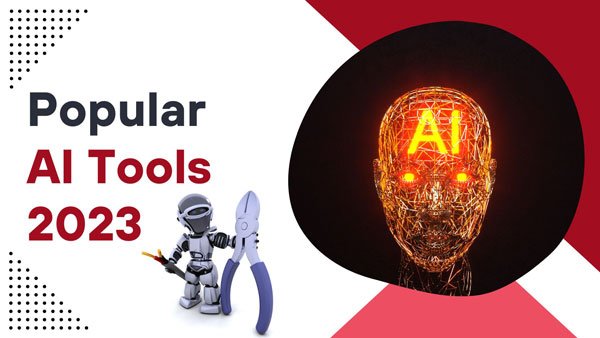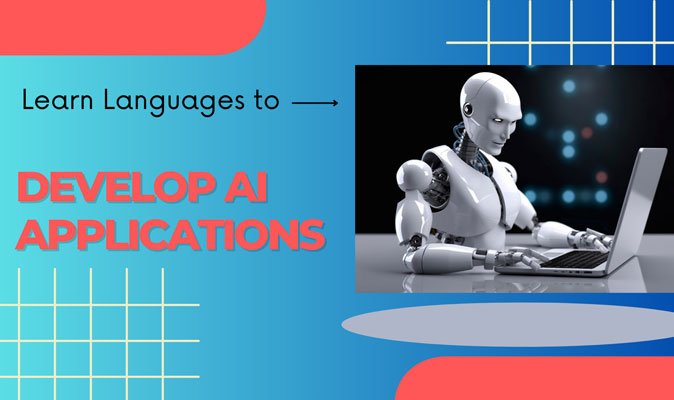Artificial Intelligences
Incredibly Popular Posts
There are several important reasons why businesses are increasingly focusing …
Subscribe Now!
Don’t miss our future updates, Subscribe to get the latest news. No spam, we promise.
Recent Trendy Posts
AI tools are crucial for both business and day-to-day life …
The most demanded programming languages for developing AI-based applications can …
There are several important reasons why businesses are increasingly focusing …
FAQ - Artificial Intelligence
What is Artificial Intelligence (AI)?
Artificial Intelligence, or AI, refers to the development of computer systems capable of performing tasks that typically require human intelligence. It involves creating algorithms and models that enable machines to learn, reason, problem-solve, and make decisions.
How does Artificial Intelligence differ from traditional software?
Traditional software follows predetermined instructions and rules, while Artificial Intelligence systems can learn from data and adapt their behavior accordingly. AI systems have the ability to improve their performance over time without explicit programming.
What are the main types of Artificial Intelligence?
The main types of Artificial Intelligence include Narrow or Weak AI, which is designed to perform specific tasks, and General or Strong AI, which exhibits human-like intelligence across a wide range of tasks and can understand, learn, and apply knowledge in various domains.
What are the practical applications of Artificial Intelligence?
Artificial Intelligence has diverse applications across industries. It is used in areas such as autonomous vehicles, healthcare diagnostics, virtual assistants, financial services, manufacturing optimization, fraud detection, personalized recommendations, and natural language processing, among others.
How does Machine Learning relate to Artificial Intelligence?
Machine Learning is a subset of Artificial Intelligence that focuses on enabling computers to learn from data and make predictions or decisions without explicit programming. It involves the development of algorithms that can automatically learn and improve from experience.
What are the benefits and challenges of implementing Artificial Intelligence?
Benefits of implementing Artificial Intelligence include increased efficiency, improved accuracy, enhanced decision-making, automation of repetitive tasks, and the ability to process and analyze large amounts of data. Challenges include ethical considerations, bias in algorithms, data privacy concerns, and the need for skilled AI professionals.
How does Artificial Intelligence impact jobs and the workforce?
Artificial Intelligence has the potential to automate certain tasks and job roles, leading to job displacement in some areas. However, it can also create new job opportunities by transforming industries and requiring skilled AI professionals to develop, implement, and maintain AI systems.
What is the future of AI?
The future of AI holds tremendous potential and is expected to have a profound impact on various aspects of society. Here are some key areas that indicate the future direction of AI:
Advancements in Automation: AI will continue to automate and streamline processes across industries, leading to increased efficiency, productivity, and cost savings. This includes automation of tasks in manufacturing, logistics, customer service, data analysis, and more.
Enhanced Personalization: AI will enable highly personalized experiences in areas such as e-commerce, entertainment, healthcare, and education. AI algorithms will analyze vast amounts of data to understand individual preferences and deliver tailored recommendations, services, and content.
Continued Growth of Machine Learning: Machine learning techniques will continue to evolve, enabling more sophisticated algorithms capable of handling complex tasks. This will lead to improved accuracy, faster training times, and the ability to handle larger datasets.
Expansion of AI in Healthcare: AI has significant potential in revolutionizing healthcare, including disease diagnosis, drug discovery, personalized medicine, and telemedicine. AI-powered systems can analyze patient data, assist in medical imaging analysis, and help healthcare professionals make more accurate diagnoses and treatment decisions.
Ethical Considerations and Responsible AI: As AI becomes more pervasive, there will be increased focus on addressing ethical considerations. Efforts will be made to ensure fairness, transparency, and accountability in AI systems, as well as to mitigate biases and prevent unintended consequences.
Collaboration between Humans and AI: Rather than replacing humans, AI is expected to augment human capabilities and work collaboratively with them. AI systems will be designed to assist humans in decision-making, perform complex analyses, and automate routine tasks, freeing up human resources for higher-level creative and strategic work.
AI in Robotics and Autonomous Systems: The integration of AI with robotics will lead to advancements in autonomous systems such as self-driving cars, delivery drones, and industrial automation. AI-powered robots will become more capable of performing complex tasks in diverse environments.
Continued Research and Innovation: Ongoing research and development in AI will drive further breakthroughs and advancements. AI algorithms, architectures, and technologies will continue to evolve, unlocking new possibilities and applications.



